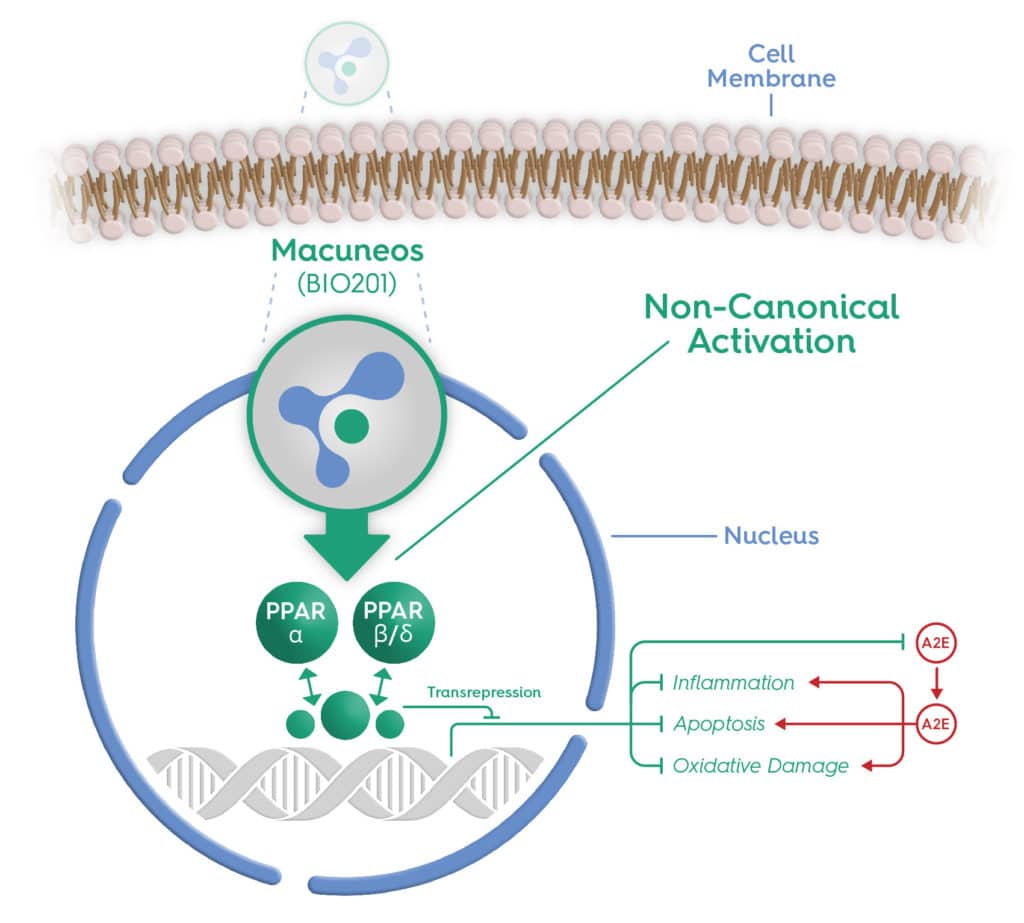Our second drug candidate, Macuneos (BIO201), is an orally administered small molecule for the treatment of diseases of the retina. Based on preclinical studies, we believe Macuneos (BIO201) stimulates biological resilience through non-canonical activation of the transrepressive activity of PPARs and may protect the retina against phototoxic damage caused by A2E (a by-product of the visual pigment cycle) accumulation that leads to vision loss.
POTENTIAL MECHANISM OF ACTION
PPARs are nuclear receptors that have two types of activities; a canonical activity, which primarily regulates carbohydrate and lipid metabolism in regenerative tissues only, and a non-canonical activity, which inhibits inflammatory processes in neuronal tissues, such as the retina and brain.
The potential mechanism-of-action of Macuneos (BIO201) is illustrated below:

We believe Macuneos (BIO201) counteracts A2E effects in RPE cells by selective activation of the non-canonical pathway of PPARα and PPARβ/δ responsible for:
- anti-oxidative activity (promoting the expression of anti-oxidant genes).
- anti-inflammatory activity (promoting the expression of anti-inflammatory genes).
- anti-apoptotic activity (enabling pathways that prevent cell death).
We believe this is in contrast with most PPAR ligands that mainly exhibit canonical activity and are typically associated with known side effects.